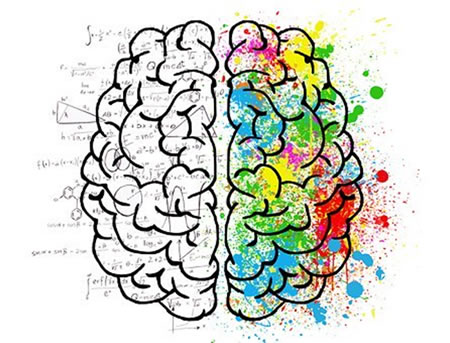Learning, how we acquire knowledge, has perhaps fascinated human beings as far back as pre-civilization. Suffice it to say, our ability to alter our behaviour (s) from our experiences in life-in most cases a considerably permanent change-is the bedrock of our progress as species.
How about we start this learning experience with a random fun fact? If you clicked the first keyword on ANY Wikipedia page, you would always end up on a philosophy article. This only goes to show how much our quest for understanding ourselves and interactions with our environment created the foundation of our modern world.
Philosophy was our first attempt at comprehending the peculiarities of both ourselves, the universe, and our place in the universe, by extension. As a matter of fact, as we know it now, science started off as natural philosophy during the Renaissance and the Enlightenment Period. Therein emerged different branches of science, including but not limited to psychology.
Our brains are perhaps the most complex system we know of in the universe. For an organ that resides right within us, we understand very little about it. Psychology seeks to understand the mind and how it works. It looks at behaviour, our motivations, and drives, as well as our perception of what lies within and around us. Hence, psychology keenly focuses on how we acquire our understanding.
Let us look at how we learn, as psychologists propose.
Behaviourism
Behaviourism proposed that learning was a school of thought that sought to get an understanding of learning from evaluating behaviours that could be observed. You have perhaps heard of a (now unethical) experiment on a little boy, Albert, who was conditioned in his formative years to develop a fear of rats.
Classical Conditioning
This is a favorite for most do my essay services for psychology papers. Classical conditioning proposes that learning is achieved through association. The now-famous experiment, Pavlov’s dog, is perhaps still the embodiment of this type of learning. In this case, salivating-a typically natural stimulus-was associated and conditioned with the ringing of a bell. To an extent, the dog would salivate at the ring of the bell, even without the presence of food.
Pavlov was attempting, rather successfully, to demonstrate that we acquire knowledge through associating particular stimuli to specific responses. The learning process, therefore, is a correlation between natural instincts and the responses from our environment.
Operant Conditioning
Operant conditioning, posited by B.F. Skinner, may ostensibly have been built on the classical conditioning school of thought. Insomuch as learning was achieved through association, the likelihood of specific responses could be altered by either reinforcement or punishment.
B.F. Skinner sought to demonstrate the extent to which consequences influenced the probability of intentional behaviour. Take, for instance, your college experience. You know that studying for your test increases your chances of passing while the converse is true as well. Hence, the motivation to study is reinforced by the idea of the eventual consequences, which, in this case, is excelling. Similarly, a student who is not particularly compelled to study may still do it to avoid the negative consequence or punishment.
To put it simply, B.F. Skinner showed that an individual could learn through either reward or punishment of the pertinent behaviour. In one way or the other, it depicts an association between a behaviour and the consequent repercussions.
Observational Learning
Developed by Albert Bandura, observational learning stems from the idea of learning through seeing and imitating. This method, ideally, is complementary to the different types of conditioning. Observational learning is quite apparent during the formative years of our lives. Whereby we are likely to observe and repeat what we see others doing around us.
He conducted a remarkable experiment, Bobo Doll, which showed how simply a child could learn behaviour by imitating their caregivers. In fact, this classical experiment is one of the most influential ones in the social learning theory.
Theories of learning are immensely pivotal in education. Together with other cognitive theories of learning, they can help educators to develop models that enhance the learning process. Not only so, but also help mould responsible individuals who make an impact on their own lives and society at large.
YOU SHOULD NOT MISS THESE HEADLINES FROM NIGERIAN TRIBUNE
Journalists Barred As Panel Grills Magu In Aso Rock
The acting Chairman of the Economic and Financial Crimes (EFCC), Ibrahim Magu, is currently being grilled by a panel set up to investigate alleged infractions against him… Read Full Story
Hushpuppi Hires Michael Jackson’s Former Lawyer To Represent Him In Court
Ramon Olorunwa Abbas, popularly known as Hushpuppi, a suspected internet fraudster and Instagram celebrity, who was arrested recently has reportedly hired a former lawyer to Michael Jackson, Mark Geragos, to represent him in court… Read Full Story
COVID-19: Trump Govt Threatens Foreign Students With Expulsion
International students who are pursuing degrees in the United States will have to leave the country or risk deportation if their universities switch to online-only courses, Immigration and Customs Enforcement… Read Full Story
PHOTOS: After Four Months, Oyo Schools Reopen Monday
After about four months, students in primary six, JSS3 and SSS3 in Oyo State resume at their various schools on Monday. As a way to curtail the spread of COVID-19 Governor Seyi Makinde had on March 21, ordered the closure of all schools in the state… Read Full Story







